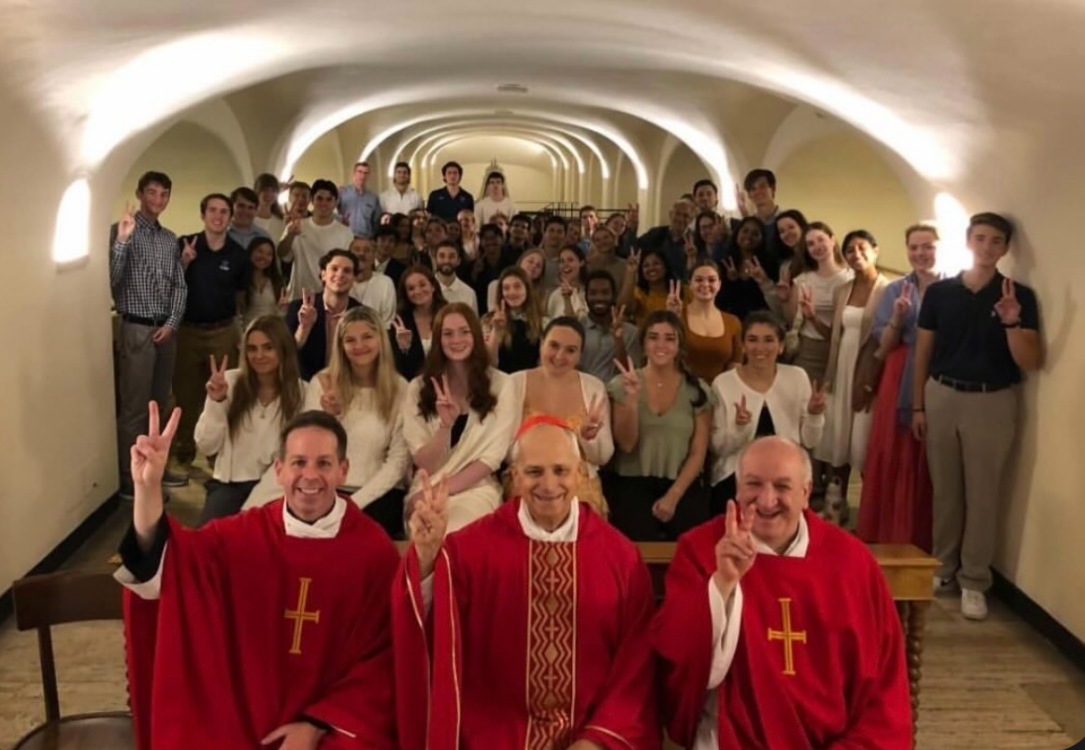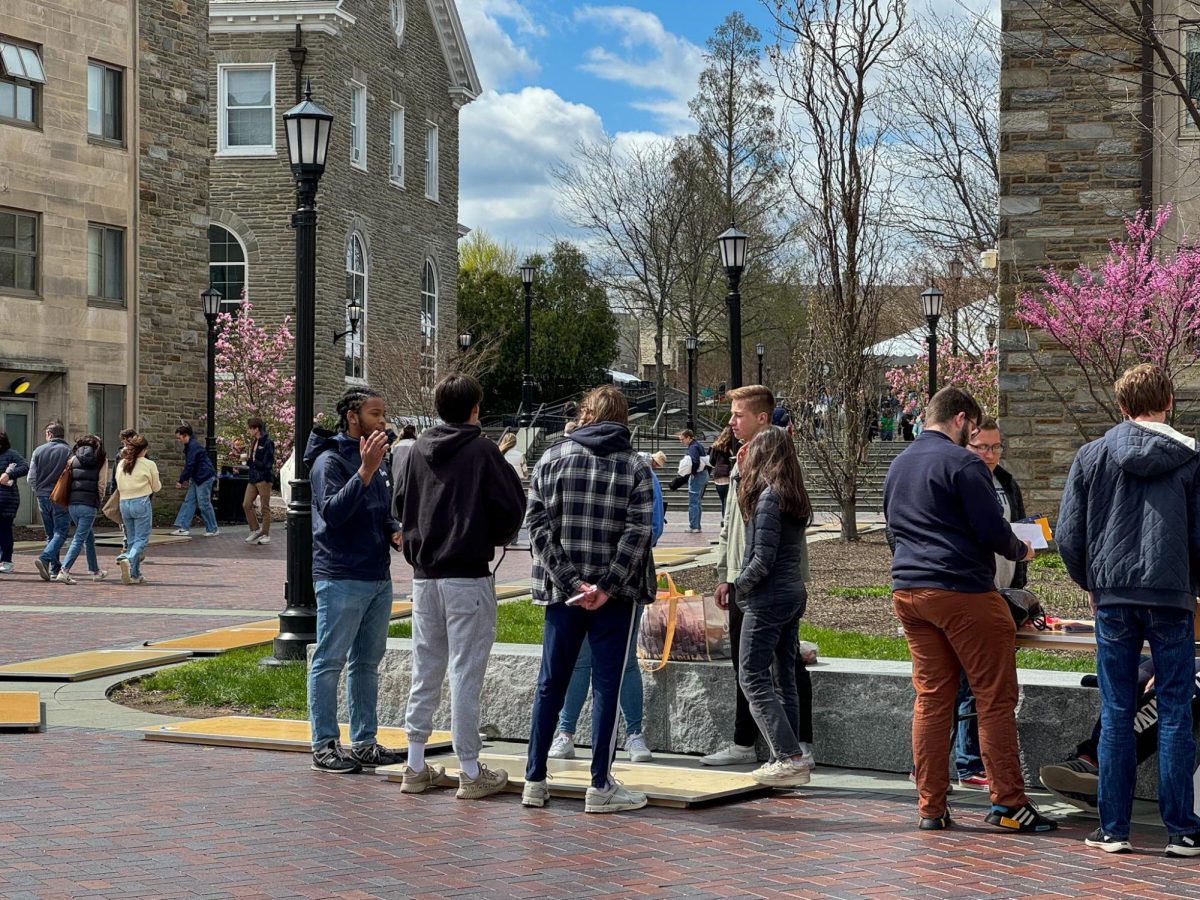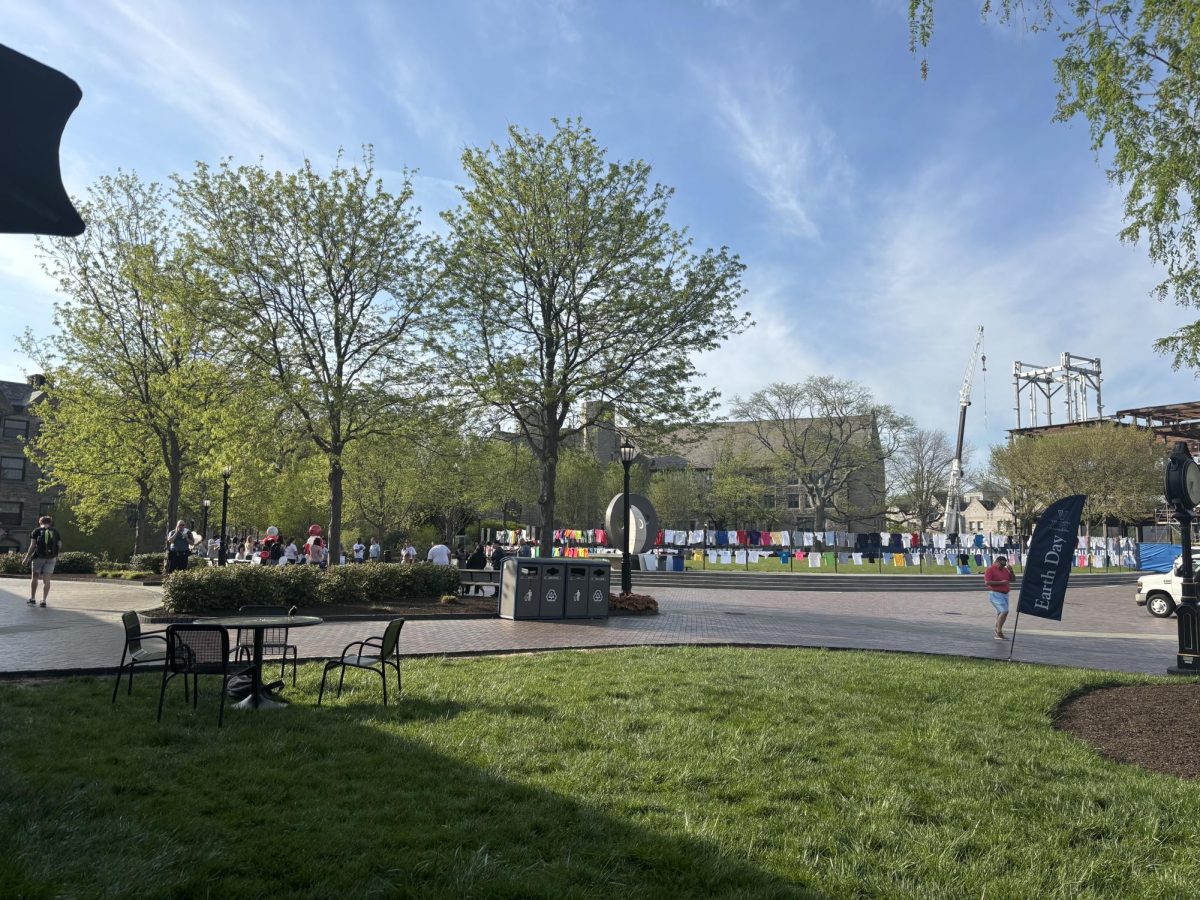On Wednesday, Nov. 13, Professor Daniel Cortes of Villanova Law School hosted a thought-provoking virtual panel featuring three distinguished educators specializing in immigration and labor. The discussion highlighted their dedication to raising awareness about the pressing human rights issues at the intersection of labor and immigration.
The event featured three speakers, Dr. Cindy Hahamovitch, Dr. Paul Ortiz and Mireya Loza.
The first speaker was Hahamovitch, a well-regarded scholar of southern U.S., immigration and labor history in a global context. She is the author of two books: The Fruits of Their Labor: Atlantic Coast Farmworkers and the Making of Migrant Poverty, 1870-1945 (UNC Press, 1997) and the triple prize-winning book No Man’s Land: Jamaican Guestworkers in America and the Global History of Deportable Labor (Princeton University Press).
Hahamovitch presented the complex issues involving labor and immigration, specifically, beginning with discussing the situations foreign workers face in the United States labor workforce. These workers who enter with a temporary visa are given false promises and unfair conditions within their job industry throughout history, which remains crucial to understanding the important context of how these injustices have persisted over time. This is largely the result of employers operating with few checks or regulations. Additionally, if the workers decide to go on strike or protest against this mistreatment or request to be replaced at an alternative job, they are likely to be hunted down by ICE, U.S. Immigration and Customs Enforcement, and will be deported immediately.
Inevitably, this leads to a number of cases where guest workers are forced to succumb to this inhumane treatment because of a system that exploits guest workers and protects employers’ ability to exploit the livelihood of foreign workers. Hahamovitch presented the question of whether or not guest workers are by definition, victims of human trafficking or not.
“We define a victim of trafficking as someone whose labor has been secured through force, fraud, or coercion,” Hahamovitch said. “And many guest workers fit in that category whether they bring charges or not. And, unfortunately, I think this has been a very weak solution.”
Next was Ortiz, who currently works as a professor at Cornell University and has written 10 books on American history, which largely aim to accurately represent historical events and occurrences. Due to his book An African American and Latinx History of the United States, Ortiz was identified by Fortune Magazine in 2020 as the author of one of the “10 books on American history that actually reflect the United States.”
One of Ortiz’ main topics of discussion involved the value of academics and education on historical events in order to have proper discourses surrounding immigrants and immigration. He emphasized the idea of racialization which discusses how certain people are convinced that they truly know who people of other cultures are.
The lack of education and understanding of history is a large factor in the formation of racist generalizations and harmful treatment of immigrant workers.
“Anglo folks think they know who Mexicans are: savages, uncivilized, anti-Christian, etc.,” Ortiz said.
Loza, the next presenter in the panel, is an award-winning public historian, who currently teaches as an associate professor in the Department of History and American Studies Program at Georgetown University. One of her books, Defiant Braceros: How Migrant Workers Fought for Racial, Sexual and Political Freedom (UNC Press), examines the Bracero program and how guest workers ended up negotiating the intricacies involved with problematic organization within guest worker programs.
She continued facilitation of this discussion through questions surrounding society and its harmful perspectives on guest workers, specifically of Mexican heritage and deportability. Dishearteningly, many Mexicans have had their human rights overlooked in the labor workplace for decades, leading Loza to discuss the many questions we must face in order to make change.
“How do we think about these guest worker programs?” Loza asked the audience. “Where do people stand on these issues? How do we show that the system is uneven by design?”
The panel also addressed the significance of Donald Trump’s presidency, particularly his policies and rhetoric around mass deportation and immigration, which many view as harmful to the treatment of immigrants. The discussion recognized the critical need for education on the value of internationalism and immigration in order to foster the fair and humane treatment of all individuals in our society, regardless of race or ethnicity.
“We need to try to work together, build bridges together and not completely shut things down,” Loza said.
Students attending this panel were incredibly engaged and invested in the discourse of this topic, given its relevance today. One student, Angelina Graceffa, a sophomore studying political science, stated her thoughts on the panel’s impact.
“I think getting to hear from immigration and labor educators who have the experience and knowledge to talk about this complicated subject allowed us students to hear a well-informed perspective that stated the facts and stories surrounding these issues,” Graceffa said.
Discussions involving immigration and labor reform are increasingly widespread, particularly in the United States. So therefore, the panel emphasized the vitality for all citizens to educate themselves, understand the historical context, and form well-informed opinions on these critical and multi-faceted issues.






